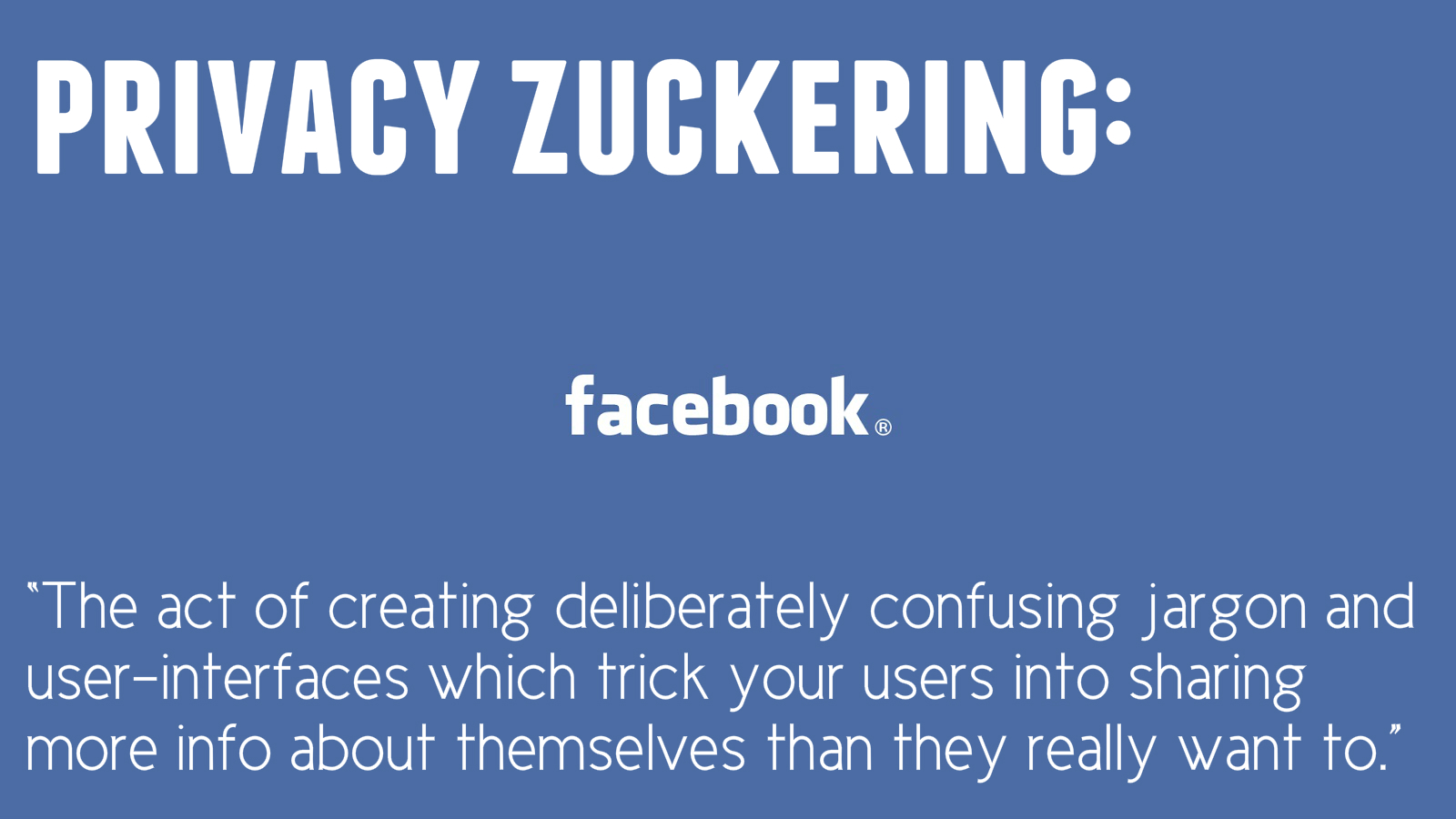
Breaking: tiger cub spotted in Bukit Kiara
The tiger cub spotted in BukitKiara: the kind that eats hikers only. MTBer be safe.

The tiger cub spotted in BukitKiara: the kind that eats hikers only. MTBer be safe.

The Irony of Clinton Embracing ‘Snowden-Approved’ Security App In 2014, Hillary Clinton claimed National Security Agency (NSA) whistleblower Edward Snowden’s leaks revealing a mass surveillance program of U.S. citizens helped terrorists and weakened national security. Meanwhile, she denied—and continues to deny—similar allegations directed at her “extremely careless” use of a private email server during her time as secretary of state. In 2015, during the first Democratic Party debate, Clinton said Snowden should “not be brought home without facing the music.” ...

“Aggregating” or combining data from multiple sources can actually reveal surprisingly specific information. You might not work for the Pentagon, but your data can be aggregated in the same way to de-anonymize you. Here’s a small collection of these surprising privacy failures: The Classic Paper – Simple Demographics Often Identify People Uniquely shows that knowing just birth date, gender, and zip code is enough to uniquely identify most people. Netflix Debacle – An anonymous Netflix dataset was de-anonymized by correlating it with the IMDB database. Social Exposure – De-anonymizing social networks (by Arvind Narayanan) demonstrates how an anonymous Twitter graph can be re-identified using Flickr for auxiliary information. Your Words Betray You – Your choice of words in writing can be analyzed to uniquely identify you according to On the feasibility of Internet-Scale Author Identification. Location, Location, Location – The traces of your GPS location app, even your approximate location, is pretty unique. Outlined in Unique in the crowd, the privacy bounds of human mobility. Bitcoin is often thought of as an anonymous currency, but it’s surprisingly non-anonymous, considering its reputation. This is because a lot of information is contained in the public ledger that records all transactions. See also An analysis of Anonymity in the Bitcoin System. Source: Tozny Blog ...

Get off Yahoo mail people - if not already done! Yahoo Inc last year secretly built a custom software program to search all of its customers’ incoming emails for specific information provided by U.S. intelligence official, according to people familiar with the matter. The company complied with a classified U.S. government demand, scanning hundreds of millions of Yahoo Mail accounts at the behest of the National Security Agency or FBI. ...

Web firms face a strict new set of privacy rules in Europe, here’s what to expect (GigaOm): EU privacy rules apply to the processing of EU citizens’ data, even if that data is processed in another country. A court or tribunal in a country outside the EU may not demand the transfer or disclosure of an EU citizen’s personal data (as with the previous point, enforcing this one would be fun). Fines for not following this regulation could be as high as €100 million or up to five percent of an enterprise’s annual turnover, whichever is larger. In other words, the likes of Google would face much higher fines for privacy breaches than the paltry sums they have to pay today, making EU law much harder to ignore. People must consent to having their personal data processed, and must be able to withdraw that consent as easily as they give it. This would create a culture of opting in, rather than today’s norm of opting out. People have the right to get their personal data from someone who holds it, in a commonly used, interoperable electronic format. This would be a victory for campaigners such as Europe v Facebook. Because the regulation harmonizes EU data protection law, EU citizens who want to complain about the violation of their privacy rights in any EU member state can approach the local data protection regulator in a member state of their choice. This makes it a lot easier to bypass the fact that U.S. web firms base their European operations in Ireland, which has relatively light-touch privacy regulation. Again, a win for campaigners. Organizations processing people’s data must provide standardized information policies to explain what they’re doing with it and why. People have the right to have their personal data erased (with public interest exceptions, so journalists can probably rest easy). This includes data passed on to third parties. People can object to being visibly profiled in a way that could discriminate against them on the basis of race, political beliefs, sexual orientation and so on, and the organizations processing their data must make sure this discrimination doesn’t occur.

Privacy Zuckering: “The act of creating deliberately confusing jargon and user-interfaces which trick your users into sharing more info about themselves than they really want to.”

Over eight years, Barack Obama has created the most intrusive surveillance apparatus in the world. To what end? From 22,300 miles in space, where seven Advanced Orion crafts now orbit; to a 1-million-square-foot building in the Utah desert that stores data intercepted from personal phones, emails, and social media accounts; to taps along the millions of miles of undersea cables that encircle the Earth like yarn, U.S. surveillance has expanded exponentially since Obama’s inauguration on Jan. 20, 2009. The effort to wire the world has cost American taxpayers more than $100 billion. ...

Learn French. It is much easier than undertsand French speaking English.
If you care about privacy, Signal is certainly not an option. – Nikos Roussos Instead, use Conversations on Android with OMEMO encryption. Whisper Systems failed big once again. They just announced their “Desktop” version of Signal, which is actually a Chrome app. So just to get facts straight, this is neither a Desktop nor a Web app. And just like their Android app, you need a Google account to download it. Actually this is even worse, because you also need to use Chrome to use this app. Channeling all your (meta)data through a closed source browser, built & distributed by the biggest tracking ad company. ...

On May 13th, I went to a conference at Sascha’s Shanghai, a great place with lots of fresh beers being served on the first floor. But before rushing for refreshments - what we would typically do at a bar, We had a chat with Philippe Massonnet. He had some thoughts on the development of China that he wanted to share with us following the publication of his book The so-called “Chinese Miracle1. ...